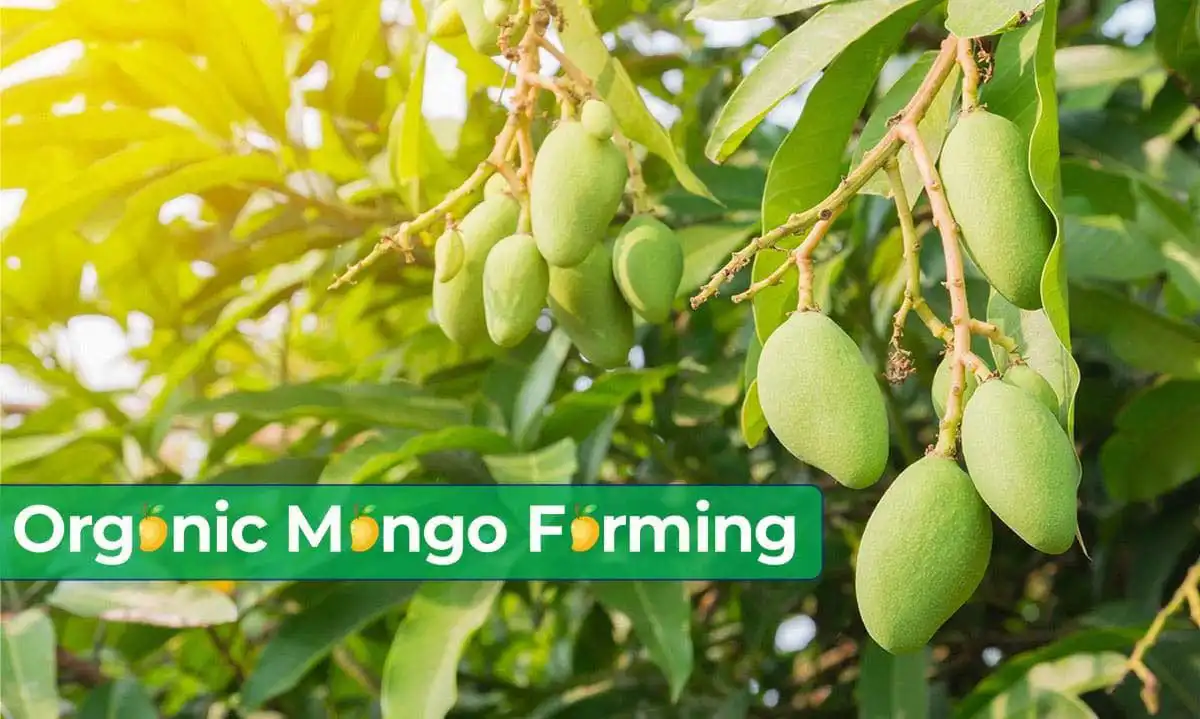Organic Mango Farming - Benefits, Types, Boons & Banes

In recent years, organic farming has gained significant momentum due to its eco-friendly practices and health-conscious consumers. Organic mango farming is no exception, as it embraces sustainable agricultural techniques that prioritize environmental preservation and human health. In this blog, we will explore the benefits, types, advantages, and disadvantages of organic mango farming, shedding light on why it is becoming a preferred choice for both farmers and consumers.
Getting to know about Organic Mango Farming
Organic mango farming involves cultivating mangoes without the use of synthetic pesticides, chemical fertilizers, genetically modified organisms (GMOs), or other artificial additives. Instead, it relies on natural methods to nourish the soil, control pests, and promote overall plant health. The goal of organic growers is to produce high-quality, chemical-free mangoes while preserving the natural balance. They cooperate with nature.
Benefits of Organic Mango Farming
Environmental Benefits
One of the most significant advantages of organic mango farming is its positive impact on the environment. By avoiding harmful chemicals and synthetic fertilizers, organic mango farms reduce water pollution and soil degradation. The absence of chemical runoff protects nearby water sources and supports the overall biodiversity of the ecosystem.
Improved Soil Health
Organic farming practices focus on nurturing the soil through the use of organic compost, green manure, and crop rotation. These practices enhance soil fertility, promoting nutrient-rich soils that are conducive to healthy mango growth.
Chemical-Free Mangoes
Organic mangoes are free from harmful pesticide residues, chemical fertilizers, and synthetic additives. Consumers can enjoy these naturally grown fruits with the confidence that they are safe for consumption.
Biodiversity and Wildlife Conservation
Organic mango farms often integrate agroforestry and maintain natural habitats, creating conducive environments for beneficial insects, birds, and other wildlife. This promotes biodiversity and contributes to a thriving ecosystem.
Enhanced Taste and Nutrition
Organic mangoes are often praised for their superior taste and aroma compared to conventionally grown mangoes. Since organic farming prioritizes soil health and nutrient-rich environments, the mangoes harvested are known to have higher nutritional content.
Advantages of Organic Mango Farming
Environmental Preservation
Organic mango farming contributes to the conservation of natural resources and minimizes the adverse effects of agriculture on the environment. By avoiding chemical inputs, organic farmers reduce pollution and protect ecosystems.
Health Benefits
Organic mangoes are healthier for consumers as they are free from harmful chemical residues. By consuming organic mangoes, individuals can reduce their exposure to potential toxins.
Soil Fertility
Organic farming practices focus on building and maintaining healthy soils. Through composting, mulching, and crop rotation, organic mango farms promote soil fertility, leading to better crop yields in the long run.
Market Demand
With the increasing demand for organic produce, organic mango farming opens up new market opportunities for farmers. Consumers are willing to pay a premium for organic mangoes, making it financially rewarding for farmers to embrace organic practices.
Disadvantages of Organic Mango Farming
Limited Pest Control
Organic mango farming relies on natural pest control methods, which may not be as effective as chemical pesticides. Farmers may face challenges in managing pests and diseases, potentially affecting crop yields.
Transition Period
Shifting from conventional to organic mango farming requires a transition period during which the soil may take time to adjust to new organic practices. This transitional phase may result in reduced yields and additional costs.
Certification Costs
Obtaining organic certification can be expensive and time-consuming for farmers, especially small-scale ones. The certification process requires compliance with strict standards, which may pose financial barriers for some.
Market Price Fluctuations
The organic market can be subject to price fluctuations, impacting the profitability of organic mango farming. Prices may vary depending on supply and demand dynamics, affecting farmer income.
Conclusion
Organic mango farming offers numerous benefits for the environment, consumer health, and farmer livelihoods. By prioritizing sustainability, organic farmers contribute to soil health, biodiversity conservation, and reduced chemical pollution. While organic mango farming may present some challenges, its advantages far outweigh the disadvantages, making it a viable and responsible choice for the future of mango cultivation. As more consumers embrace organic produce, the demand for organic mangoes continues to rise, making it a lucrative venture for farmers who champion sustainable and healthy agricultural practices.
Latest Blog
JOIN OUR COMMUNITY !
Stay connected with Getfarms! Follow us on social media for the latest updates, exclusive offers, and a glimpse into the world of farmhouse living. Join our community today














